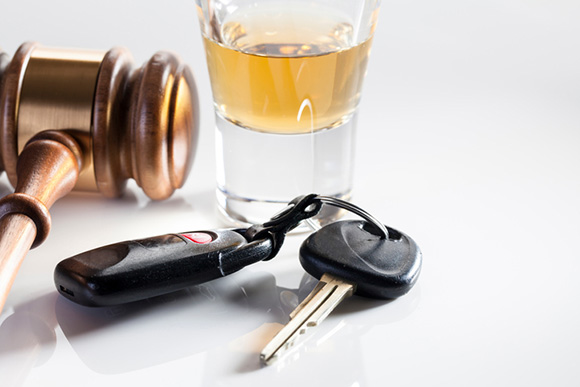The ongoing issue of stopping drunk drivers is never as sadly presented as when a careless driver causes injury or death to innocent citizens. A few high profile DUI cases are back in the news and bringing attention to sentencing and penalties for first-time DUI offenses. Our skilled Las Vegas DUI lawyers explain the details of these cases and possible changes to Nevada DUI laws.

Tragic DUI Takes the Lives of 3 Innocent Teens
Such was the case when 29-year-old Bani Duarte decided to drive drunk two years ago, resulting in the deaths of three Las Vegas teenagers: Brooke Hawley, Dylan Mack, and Albert Rossi.
All three victims were pronounced dead on the scene, on the Pacific Coast Highway, according to the Orange County district attorney’s office. The crash took place while the three friends were visiting California over spring break. It was a violent, fiery crash, leaving the three Centennial High School students dead, and a fourth friend critically wounded with burns and a concussion. Bani had rear-ended the teenager’s car at high speeds while their vehicle was stopped at a red light; her car pushed the teens’ car into the intersection where it smashed into a pole and burst into flames.
Bani Duarte was convicted of three felony counts of second-degree murder and one felony count of driving under the influence of alcohol causing bodily injury for the March 2018 crash, and just this year, she received her sentencing. She will be in jail for 51 years due to her negligence.
The Defendant’s BAC Was Nearly 4 Times the Legal Limit
Bani shared very emotional victim impact statements during her sentence hearing, though the victims’ parents gave statements that were even more profound. “The impact will not be over for me until the day I take my last breath,” Brooke Hawley’s mother said.
“Ms. Duarte, you will be able to see your children through glass in jail,” shared Albert Rossi’s father, “If I want to see my son, I have to go to a cemetery.”
Bani Duarte’s blood-alcohol level was .30 at the time of the crash, a level that is approaching four times the legal limit, according to the DA’s office. As well, she had a previous conviction for driving under the influence in 2016 and lost her driver’s license for a year at the time. Yet, current laws are such that she was allowed back on the road after that incident.
Another Well-Known DUI Case Highlights Similar Issues
In another awful case of negligence by a careless, drunk driver, Scott Gragson plead guilty last month to charges resulting from a fatal 2019 DUI crash that he had caused.
Scott Gragson, age 53, will not be eligible for probation during his sentencing. The crash he caused killed Melissa Newton, a mother of three children, and also injured three other people in the process. Gragson’s blood-alcohol level was twice the legal limit at the time of the crash. His sentencing is set for June 12th; law enforcement anticipates a sentence of anywhere from 15-25 years behind bars.
Attorneys Tried to Get the Case Thrown Out
In case you missed the details from his original case, Gragson is a multi-millionaire real estate developer that had initially pleaded “not guilty.” At the same time, his attorneys attempted to get his case thrown out of court over alleged missteps by police.
The case did not get thrown out. To add to the evidence against Gragson, there is even video of the fatal crash from back in May of 2019. Similar to the case with Duarte, this was not Gragson’s first DUI. He’d been arrested for DUI before and for a variety of speeding violations.
During this particular crash, Gragson was speeding in his Range Rover and lost control, at which point he hit a tree in the Ridges Community, an affluent housing development in South Summerlin near Flamingo and Town Center Drive.
Defendant Facing Multiple Lawsuits in Addition to the Criminal Charges
There were four passengers in the car that day, including 36-year-old Melissa Newton, the mother of three who was killed in the crash. Other passengers included Greg Tassi and Christie Cobbett. They are each suing Gragson. Another real estate executive, Christopher Bentley, is suing Gragson after suffering brain damage during the crash.
The lawsuits of the victims claim that after Gragson approached the security gate at the entrance to the Ridges, he became belligerent and “proceeded to barrage the security officer with verbal abuse” before driving away at a high speed.
Gragson’s blood-alcohol test was taken over three hours after the crash, which is why Gragson’s attorneys made a fuss in pre-trial. However, thankfully, their attempt to thwart justice was overturned.
DUI Cases Bring Attention to Current Laws
Perhaps it’s time for lawmakers to look into policy changes regarding allowing repeat DUI offenders on the road. The cases involving Duarte and Gragson are just two of too many that appear every month before the courts in Nevada. The question remains: why are we allowing repeat DUI offenders back on the road after severe, initial digressions from the law? Are the first time DUI penalties not steep enough to deter them from committing the same crime again?
A first-time offense can carry a fine from $400-$1000, attendance in DUI school, a 185-day driver’s license revocation (or a restricted license with an ignition interlock device), and 2 days – 6 months in jail. However, the judge grants suspended sentences or orders 48-96 hours of community service in most cases.
Lawmakers Push for Harsher Penalties for First-Time DUI
Some lawmakers in Carson City are pushing for harsher penalties for DUI crimes, considering nearly half of all fatal crashes in Las Vegas involve an impaired driver. Senate Bill 297 is one of the latest bills that hopes to see changes made to the current laws. Specifically targeted are repeat offenders, who make up about 30% of DUI arrests. The bill increases fines and jail times. As well, the jail time for a first offense DUI would be bumped up from two days to 30 days.
Hopefully, Senate Bill 297 is only the first step because there appears to be too much leeway in current “first offense” sentencing. One way or another, it’s time to tighten up the policies and mandate longer minimums, so offenders think twice before getting behind the while intoxicated again. It’s a matter of innocent lives.





